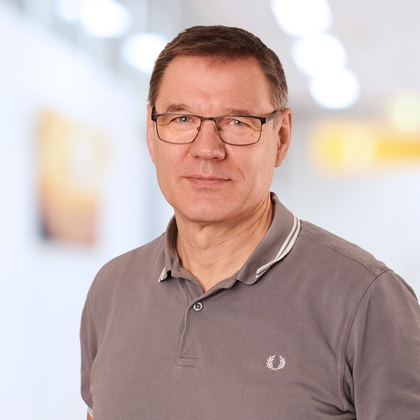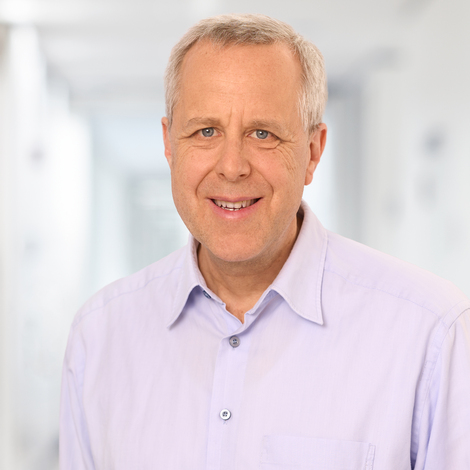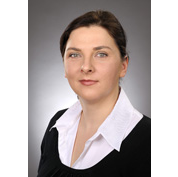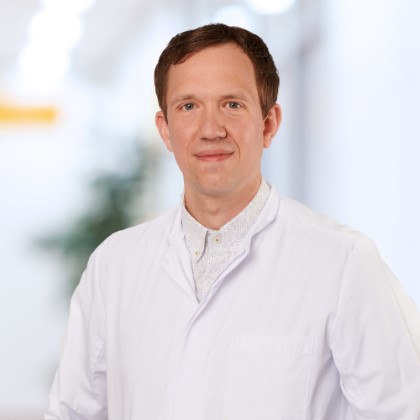Modules
The Master's program Molecular Medicine has a scope of 120 ECTS credits within a time frame of 18 months. The following mandatory modules (76 ECTS credits) as well as elective modules amounting to 14 ECTS credits must be completed in the Master's program.
M.MM.101 Biomolecules and Pathogens (24 ECTS credits)
In the course of the module the students will aquire deepened molecular knowledge of the interplay between pathogens and host defense, immunological diseases and pharmacological approaches to interfere with various disorders. The graduates know current immunological questions and methods, and are able to explain the mechanism and therapy of related diseases. They know the function and regulation of microbial virulence factors and understand their role in the pathogenesis of infectious diseases. In addition, they have extensive insight into the taxonomy and structure of viruses. The graduates know the principles of pharmacological research and current therapeutic strategies. They can apply concepts of pharmacology to practical examples and name effects of selected toxic substances. The graduates have the ability to work under supervision on a small defined scientific project using experimental methods of the field, and to analyze and interpret the obtained data. They are able to present and discuss them in written form similar to a scientific publication.
Person responsible for module: Prof. Dr. Holger Reichardt
M.MM.102 From cells to disease mechanisms (24 ECTS credits)
After successfully finishing this module the students should be familiar with molecular processes within the cell and corresponding aspects associated with pathological changes and pathological tissues. They are able to describe qualitatively genetic and metabolic diseases as well as inflammatory and cancerous processes. The students are familiar with tools, concepts and methods of cell biology, pathology, human genetics and mol. & experim. oncology and thus are able to describe causes and consequences of changes within genetic and cellular processes by using typical examples. Furthermore, fundamental mechanisms in pathology, genetics and cell biology are deduced including scientific paper discussions. In addition, under qualified supervision students acquire the ability to perform experimental work within the lab covering a clear cut topic or highly sophisticated method. The results of this practical course will be presented within the corresponding scientific group and written down in corresponding scientific style.
Person responsible for module: Prof. Dr. Dieter Kube
M.MM.104 Current Topics in Molecular Medicine (4 ECTS credits)
After completion of the module, the participant is capable of communicating his own scientific projects to a broader audience of scientists. Furthermore, she/he is capable of introducing such an audience to a general topic of molecular medicine. She/He can summarize primary scientific literature and review articles in an overview talk. The participants will be capable of following seminar talks about a topic that they are not immediately familiar with. They are asking meaningful questions and have become able to discuss methodological approaches and scientific conclusions in a critical and constructive manner.
Person responsible for module: Prof. Dr. Matthias Dobbelstein
M.MM.105 The disease-affected heart and kidney (7 ECTS-Credits)
After successfully completing this module the students should be familiar with molecular aspects of different renal diseases like polycystic kidney disease, diabetic nephropathy as well as with mechanisms leading to renal fibrosis. In molecular cardiology the student become familiar with mechanisms of different forms of heart failure, mechanisms of arrhythmia and myocarditis and the role of stem cells in tissue regeneration. In pharmacology, this knowledge is supplemented by pharmacotherapeutic strategies in the treatment of hypertension, heart failure, arrhythmia, the metabolic syndrome and thromboembolic events. An outlook on potential future therapies of cardiovascular diseases is given including gene therapy, stem-cell based therapies and tissue engineering.
Person responsible for module: Prof. Dr. rer. nat. Susanne Lutz
M.MM.106 The disease-affected brain (5 ECTS-Credits)
After successfully finishing this module, students should be familiar with the neuropathological / molecularbiological hallmarks of the most important neurological diseases. Mechanisms playing a role in neurodegenerative disorders resulting from protein misfolding like Alzheimer’s, Huntington’s and Parkinson’s disease, as well as Prion diseases will be covered. A further goal of this module is a profound understanding of the molecular mechanisms of neuromuscular diseases (including polyneuropathies, myopathies, Amyotrophic Lateral Sclerosis and Spinal Muscular Atrophy), cerebral vascular diseases (especially ischemic Strokes) and neurological autoimmune diseases including Multiple Sclerosis and its Mimics, as well as paraneoplastic and other autoimmune Encephalitides. CNS tumors and Epilepsia will also be covered. These topics are complemented by the presentation of state-of-the-art therapeutic strategies to treat the most common neurological diseases.
Persons responsible for module: Prof. Dr. med. Christine Stadelmann-Nessler, PD Dr. Fabian Maass
M.MM.107 Lab Rotation Brain & Heart (12 ECTS-Credits)
The practical work will be performed under direct one-to-one supervision in a group with expertise in a discipline linked to the field of molecular neurology or cardiology. By participating in a research project the students will learn to answer scientific questions using state-of-the-art techniques, critically analyze own research data, manage time and resources in a scientific project, present and discuss own data in an appropriate written form.
Person responsible for module: Prof. Dr. rer. nat. Holger Reichardt
Master's Thesis (30 ECTS credits)
With the written Master thesis, the candidate should prove that he or she is able to
process a problem using scientific methods within the time frame of 6 months, develop an independent,
scientifically established judgement, arrive at scientifically underpinned statements and
illustrate the results in a linguistically as well as formally appropriate manner.
Contact persons
contact information
- telephone: +49 551 3963365
- e-mail address: hreichardt(at)med.uni-goettingen.de

contact information
- telephone: +49 551 395307
- e-mail address: dkube(at)med.uni-goettingen.de

contact information
- telephone: +49 551 3913840
- e-mail address: mdobbel(at)uni-goettingen.de

contact information
- telephone: +49 551 3910665
- e-mail address: susanne.lutz(at)med.uni-goettingen.de
ORCID: 0000-0002-0554-8070
contact information
- telephone: +49 551 3967570
- e-mail address: cstadelmann(at)med.uni-goettingen.de

contact information
- telephone: +49 551 3965593
- e-mail address: fabian.maass(at)med.uni-goettingen.de